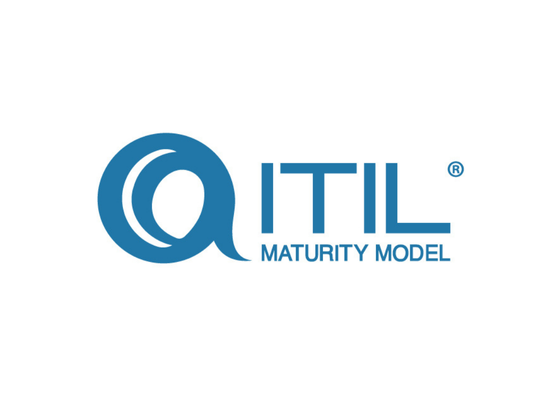In today's fast-paced digital landscape, mastering Service Management is crucial for organisations striving to maintain a competitive edge. Vodafone's strategic overhaul of its Service Management Function offers a compelling case study, highlighting the transformative power of adopting IT Service Management Best Practices to streamline operations and enhance service delivery.
This insightful exploration into Vodafone's journey provides valuable lessons for IT professionals, business managers, and service delivery leaders seeking to drive Business Process Improvement within their own organisations. By leveraging ITIL certification training and comprehensive maturity assessments, companies can align their service management strategies with proven frameworks, fostering a culture of continuous improvement and operational excellence. Join us as we delve into the Vodafone Case Study to uncover practical insights that can elevate your service management capabilities to new heights. Read more here.
Vodafone's Global Service Management Transformation
The transformation of Vodafone's Global Service Management is a pivotal example of how strategic changes can drive significant improvements. Vodafone has set a new standard in the industry by realigning their management practices and incorporating innovative processes and practices. This section explores the motivations and implementations behind their successful transformation.
Key Drivers Behind the Change
Vodafone's decision to transform its Global Service Management Function was driven by several key factors. Primarily, the need to enhance customer satisfaction and streamline operations was a significant influence. The rapidly evolving technological landscape also demanded a more agile and efficient service management approach.
Vodafone recognised that outdated processes were hindering growth and responsiveness. They understood that to remain competitive, they needed to adopt more robust and standardised practices. This realisation was instrumental in initiating the change.
-
Customer Expectations: Higher demands for service quality and reliability.
-
Operational Efficiency: Necessity to reduce costs and improve process speed.
-
Technological Advancement: Keeping pace with innovations and digital transformations.
Ultimately, these drivers underscored the importance of adopting IT Management Best Practices and Vodafone's leadership committed to a strategic overhaul to address these challenges effectively.
Implementing a Service Management Function
The implementation of a Service Management Function at Vodafone involved the integration of ITIL frameworks and methodologies, which provided a foundation for standardising procedures across the organisation.
Initially, Vodafone conducted a comprehensive capability/maturity assessment of existing their processes. This helped identify inefficiencies, areas for improvement and the assessment paved the way for developing a new service management strategy aligned with ITIL principles.
Key steps in the implementation process included:
-
Training and Development: Upskilling staff through ITIL certification programs.
-
Process Standardisation: Creating uniform procedures to ensure consistency.
-
Technology Integration: Adopting tools that support IT Management Best Practices.
These initiatives culminated in a Service Management Function that enhanced service delivery and operational performance. Vodafone's experience exemplifies the benefits of a structured approach to implementing such functions.
Lessons from Vodafone's Case Study
By embracing best practices, businesses can achieve operational excellence and drive continuous improvement. Vodafone's case study offers valuable lessons for organisations seeking to enhance their service management capabilities.
ITIL has helped transform Vodafone’s global approach to service management. Not only has ITIL enabled Vodafone to develop an end-to-end approach but there has also been a 46% reduction in major incidents leading to time savings of 364 hours to the wider business.
IT Service Management Best Practices
The adoption of IT Service Management Best Practices was central to Vodafone's success. By aligning their strategies with proven frameworks like ITIL, they were able to standardise processes and improve service quality.
Their approach demonstrated the importance of a structured framework in guiding service management. ITIL provided a comprehensive set of practices that helped Vodafone optimise their operations and align services with business needs.
-
Process Efficiency: Streamlined workflows reduced bottlenecks and increased agility.
-
Service Quality: Enhanced alignment with customer expectations through standardised practices.
-
Continuous Improvement: Fostered a culture of ongoing enhancement and innovation.
These best practices not only supported operational goals, but also fostered a proactive service management culture. Vodafone's experience illustrates how structured methodologies can drive significant improvements.
Business Process Improvement Insights
Vodafone's journey underscored the critical role of Business Process Improvement in achieving service excellence. By continuously evaluating and refining their processes, they maintained a competitive edge.
The company leveraged maturity assessments to identify gaps and opportunities for improvement. This proactive approach enabled them to adapt to changing market demands and technological advancements.
Key insights from their process improvement efforts included:
-
Baselining: Using assessments to measure the current process maturity, capability and effectiveness.
-
Iterative Refinement: Regularly updating processes to reflect best practices.
-
Stakeholder Engagement: Involving all levels of the organisation in improvement initiatives.
These insights highlight the necessity of an ongoing commitment to Business Process Improvement.
Elevating Your IT Strategy
To elevate your IT strategy, it is essential to leverage training and assessment tools that align with industry best practices. By investing in certification and maturity assessments, businesses can enhance their service management capabilities and achieve sustainable growth.
Leveraging ITIL Certification Training
Investing in ITIL certification training is a strategic move for organisations seeking to enhance their IT strategies. This training equips IT professionals with the skills needed to implement and manage best practices effectively.
ITIL certification offers several advantages, including:
-
Knowledge Acquisition: Provides a comprehensive understanding of ITIL frameworks and methodologies.
-
Professional Development: Enhances the skill set of IT teams, enabling them to deliver higher quality services.
-
Alignment with Best Practices: Ensures that processes are aligned with industry standards.
Organisations can foster a culture of excellence and continuous improvement but prioritising knowledge uplift and certification training of their employees. ITSM Hub offer the full suite of ITIL certification courses, with flexible delivery methods including self-paced online and instructor-led.
ITIL Maturity Assessment Benefits
Conducting ITIL Maturity Assessments is crucial for organisations aiming to assess and improve their service management maturity. These assessments provide valuable insights into current capabilities and areas for development.
The maturity assessment process involves evaluating existing practices against ITIL standards. This helps identify strengths, weaknesses, and opportunities for process enhancement.
Benefits of ITIL Maturity Assessments include:
-
Gap Analysis: Identifies discrepancies between current practices and best practice standards.
-
Strategic Alignment: Ensures alignment of IT services with business objectives.
-
Continuous Improvement: Drives ongoing process refinement and enhancement.
By leveraging maturity assessments, organisations can make informed decisions to elevate their IT strategies effectively. ITSM Hub is an accredited consulting organisation with PeopleCert, our consultants are accredited for ITIL and P3M3 assessments. Book a complimentary discovery call with our team today.

























